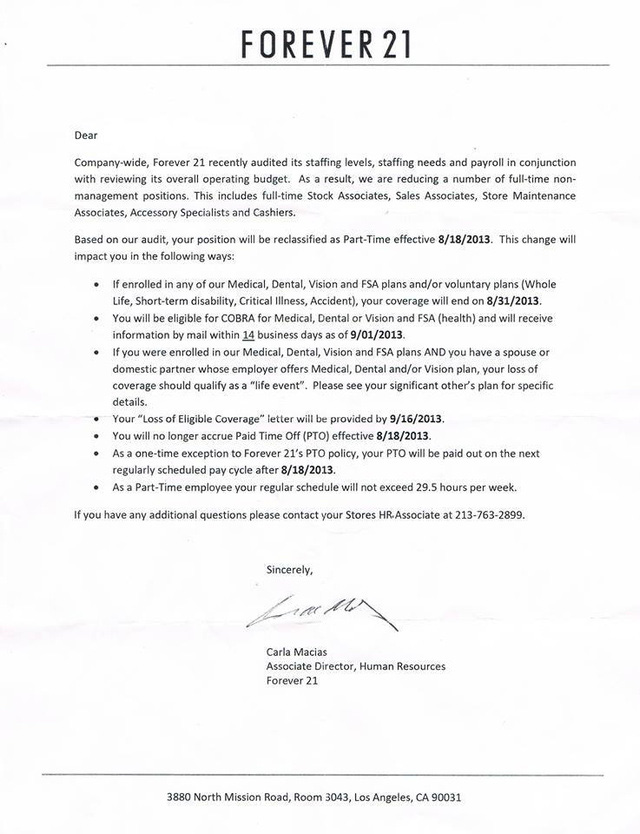 "Dear (employee), We're cutting your hours and your benefits. If you have questions call nameless HR person. Oh, and by the way, please keep selling our great products with passion."
"Dear (employee), We're cutting your hours and your benefits. If you have questions call nameless HR person. Oh, and by the way, please keep selling our great products with passion."
That's my take on a leaked employee letter from Forever 21 as reported by Jezebel.
The retailer has come under fire from many camps on what it's doing to "manage staffing levels" and deal with upcoming healthcare changes.
No matter where you fall on the political spectrum, you have to admit that this approach to employee communications is bad form. We think it's also going to affect the bottom line in a way the retailer hasn't anticipated.
Turnover cost
Store managers will have a harder time retaining their existing workforce. (Managers may not want to stay, either—and they'll be picking up the slack since they're salaried.)
The hip fashionistas working the floor know the ropes: how to merchandise, assist customers and close a sale. They have the skills and knowledge to keep the engine running smoothly. And no matter how cool the merchandise is they can buy at a discount, they will probably move on to find an employer who gives them the compensation (and the love) they need. click the letter to enlarge
click the letter to enlarge
HR professionals will tell you the cost of replacing people is 1.5 times their salary. So turnover always affects profit.
Lost revenue
For the employees who do stay, I predict two other revenue-crippling outcomes:
- Fewer employees working the floor means customer service failures and more chance of shrink (theft and loss).
- The employes who do interact with customers are going to be less-than-enthusiastic. They may be downright prickly.
Employees are internal customers who also need to be in love with their brand. How on earth can they sell with passion and conviction if they feel like they're working for a stinker?
Review your employee communications. Are they a brand "DO" or "DON'T"? If you need help with analysis via secret shopping or other strategies, contact Martha
TAGS: employee brand, internal culture, business strategy, workforce, revenue, profit



